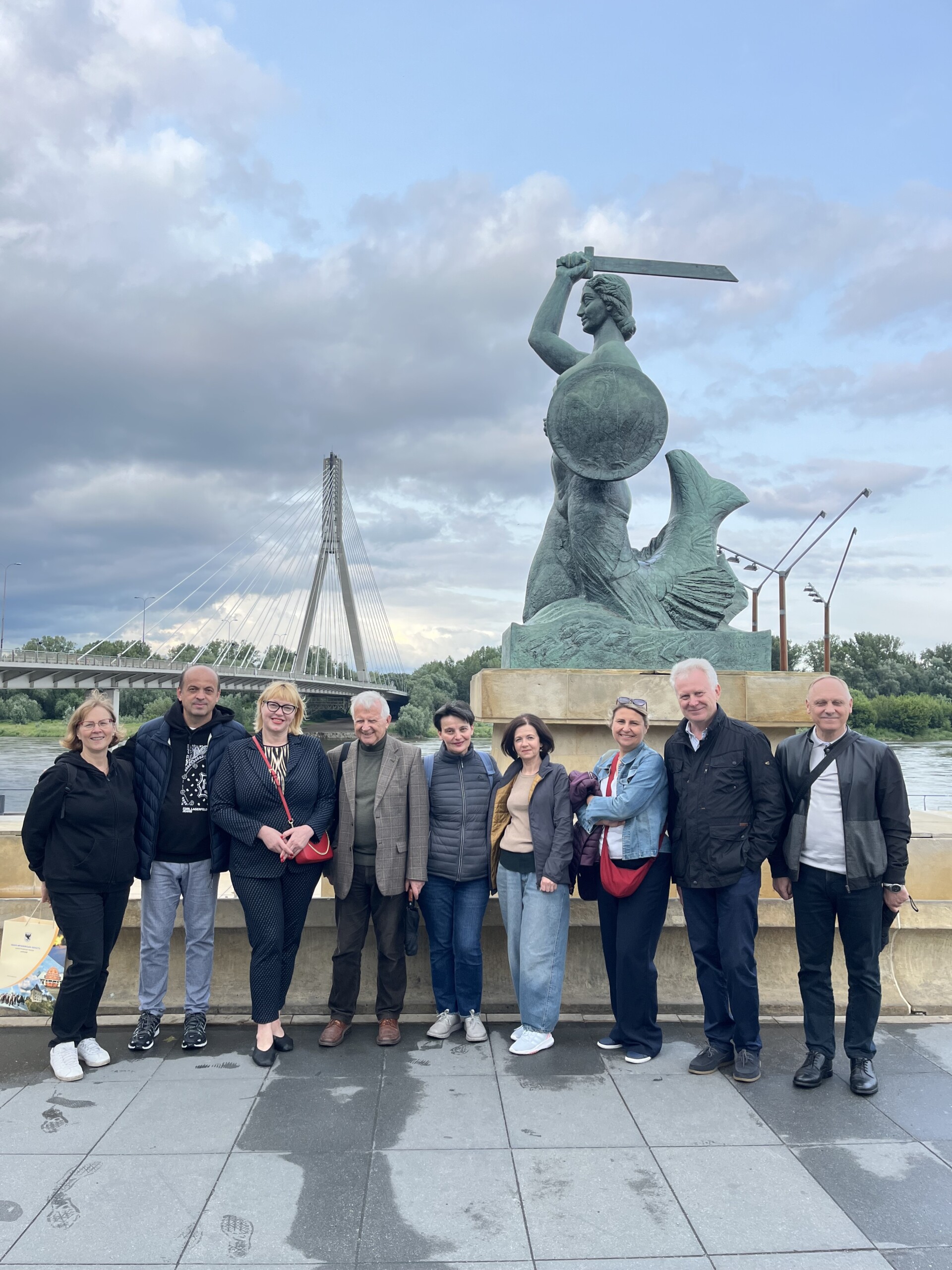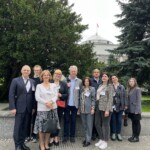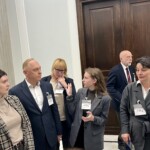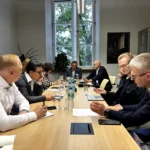Study visit to Warsaw

09 06 2025
On 9-11 June 2025, the first study visit organised within the framework of the project “The impact of the shape of the political system on the quality of functioning of state institutions took place in Warsaw. Polish and Ukrainian experiences and perspectives”. The aim of the visit was to deepen the knowledge of the functioning of political institutions by learning about them directly, going beyond the theoretical approach.
As part of the three-day programme, our research team met with representatives of NGOs, public administration and the expert community. Discussions included the condition of civil society, the evolution of electoral law, legislative challenges and the work of the Sejm, and the role of the civil service in building an efficient and apolitical state apparatus.
Two meetings were held on the first day. One of them was devoted to the institutions of civil society and their historical evolution. Ms Katarzyna Batko-Tołuć (member of the Board of the Foundation for Poland and initiator of the Watchdog Polska Civic Network) presented the experiences of watchdog movements and activities for the transparency of public life. They also discussed the challenges faced by civil society and specific mechanisms to counter abuse of power.
The second meeting of the day dealt with the evolution of electoral law in Poland – from the Second Republic to recent times – with a particular focus on the independence of electoral institutions and the political implications of legislative reforms. The impact of these reforms on the quality of the electoral process and the political implications of the instrumentalisation of law were discussed. Expert knowledge was shared by Dr Ryszard Balicki, Professor of the University of Wrocław and member of the State Electoral Commission.
On the second day of the visit, a meeting was held with Mr Krzysztof Izdebski – an expert from the Stefan Batory Foundation, who shared his reflections on the systemic reforms in Poland and Ukraine, the European integration process and the importance of the migration debate in the context of regional security. The speaker’s presentation became the starting point for a wide-ranging discussion on the condition of democracy and the need for strategic thinking about public policy. The discussion also touched on the significance of the recent parliamentary elections in Poland in the broader international context, the challenges of Ukraine’s integration into the European Union, and the complexity of Polish-Ukrainian relations, encompassing both shared wartime experience and differences of a historical and social nature.
The third day was devoted to the functioning of parliament and the legislative process in Poland. At the Chancellery of the Sejm, participants met with Minister Jacek Cichocki (Head of the Chancellery of the Sejm), Stanisław Zakroczymski (Director General of the Office of the Speaker of the Sejm), Dr Piotr Kędziora (Director of the Legislative Office) and Jan Morwiński (Director of the Office of Social Communication).
The meeting discussed, among other things, the organisational structure of the Chancellery of the Sejm, the role of Sejm committees in the legislative process, the importance of transparency and technological challenges related to the development of artificial intelligence. Particular attention was paid to the initiative of the Chancellery of the Sejm on international cooperation in implementing AI in legislative work – the first of its kind in Europe. The discussion also touched on the powers and limitations of the Sejm, the Senate and the President in the legislative process, the role of committees as a key link in legislative work, the pace at which laws are passed and the quality of parliamentary bills. The importance of public consultations as an essential element of the legislative process was also emphasised.
A meeting on the civil service was also held on the same day. Mr Dagmir Długosz from the Chancellery of the Prime Minister and the National School of Public Administration, long-time head of the Civil Service, presented the evolution of this institution in Poland since 1989 and the challenges it faces – ethical, competence and organisational. The presentation also included examples of good practice from other countries. The need to build a stable, professional and apolitical administration as a pillar of an efficient state was emphasised.




